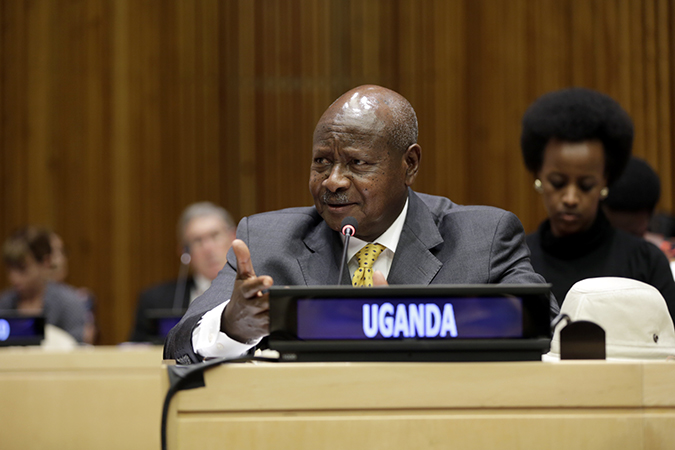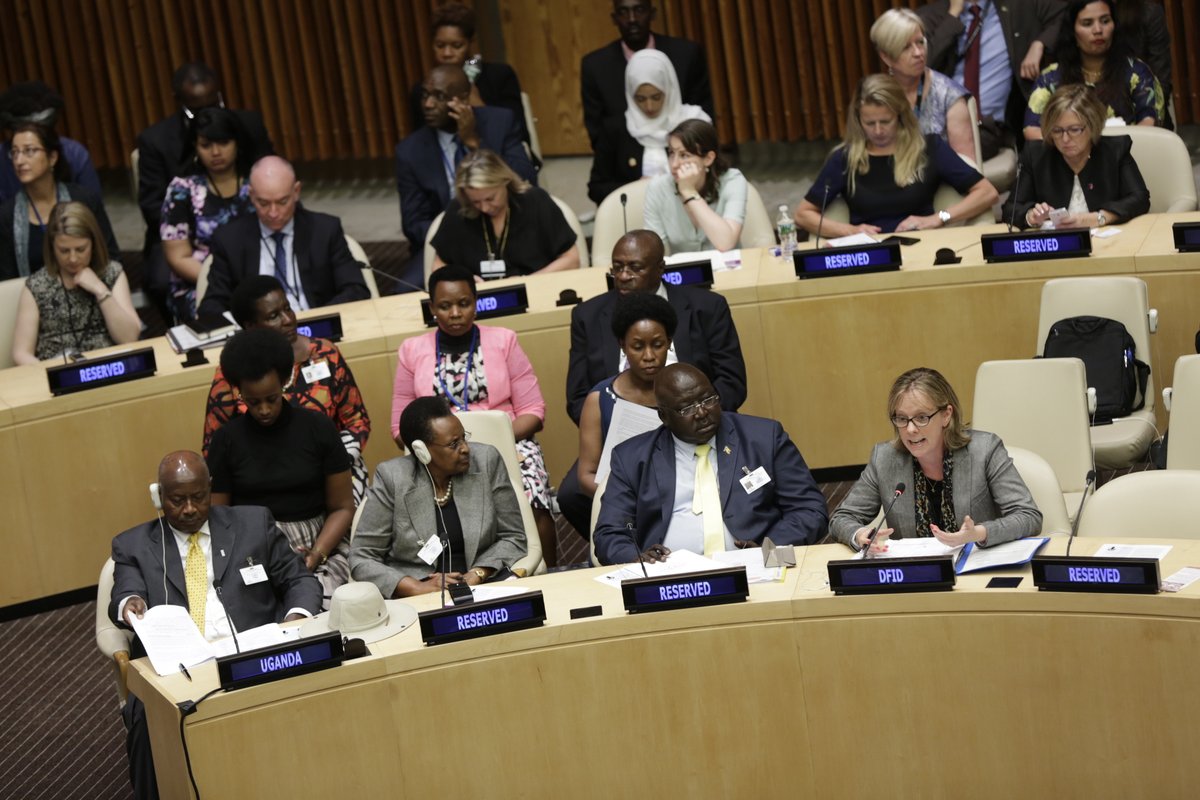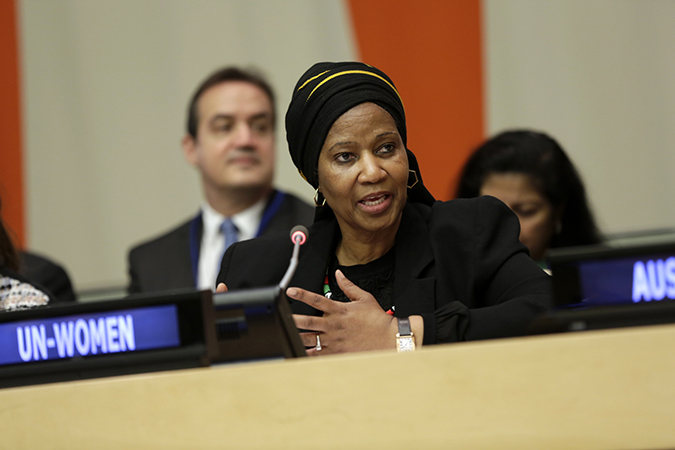
President Yoweri Museveni has said education and rural transformation can help empower the girl child and push women’s progress for a better society. He said marginalising girls in the field of education would lead to unbalanced growth.
The president was speaking at a high-level event on September 21, during the 71st session of the United Nations General Assembly, during which the UN Women launched a new public private partnership to close gender data gaps for SDGs monitoring and accountability to support its flagship programme initiative, “Making Every Woman and Girl Count”.
“One of the important guiding principles of the NRM Government in Uganda is zero tolerance to discrimination against our women and girls in policy implementation and service delivery. This principle is very well articulated in our Constitution which guarantees equality, gender balance, affirmative action for marginalized groups and accords women full and equal dignity of person with men,” Museveni said.
Museveni who was accompanied by the First Lady and Minister of Education Janet Kataha Museveni and their daughter Natasha Museveni Karugire, highlighted the challenges Uganda faces and the policies his government has put in place that have made a difference to women and girls.

“We have introduced universal education so that girls can go to school. In a traditional society, it is the girl who goes to collect water. That burden is reduced when you bring water to the village,” he said.
Museveni said Uganda has embraced the principles of sustainable development as stipulated in the 2030 Agenda.
“We have localized the agenda in our National Planning Frameworks. We have already demonstrated leadership in aligning the gender equality commitments in the SDGs in our Party Manifesto, the National Vision, the National Development Plan, our Sectoral Plans and legislated it in our Public Finance Management Act, 2015,” he said.
The event co-funded by the Bill and Melinda Gates Foundation is a five-year programme that will invest much-needed resources and expertise, focusing on 12 pathfinder countries, to generate, prioritize and use gender data. It will assist countries in making evidence-based and targeted policies to fully implement and track progress on the Sustainable Development Goals (SDGs).
Uganda’s population currently estimated at 36.6 million is predominantly rural with only 15% living in the urban areas. Women constitute 51.2% of the population with a sex ratio of 95 males per 100 females. This implies that if development is to be fair women’s contributions in social political and economic spheres should not only be solicited but should be deliberately promoted for equitable and sustainable development

In her remarks, UN Women Executive Director Phumzile Mlambo-Ngcuka stressed, “Without gender data, there is no credible path to achieving the SDGs. Right now, we do not have data to monitor 80 per cent of the indicators for SDG 5, on gender equality.”
Melinda Gates, co-Chair of the Bill and Melinda Gates Foundation, believes that we cannot close the gender gap without closing the gender data gap. “Gender data is foundational to all this work. We can’t make good decisions without good data,” she said. When asked about a top priority, Ms. Gates said, “I would collect data on women’s unpaid care work”.
 The Independent Uganda: You get the Truth we Pay the Price
The Independent Uganda: You get the Truth we Pay the Price





